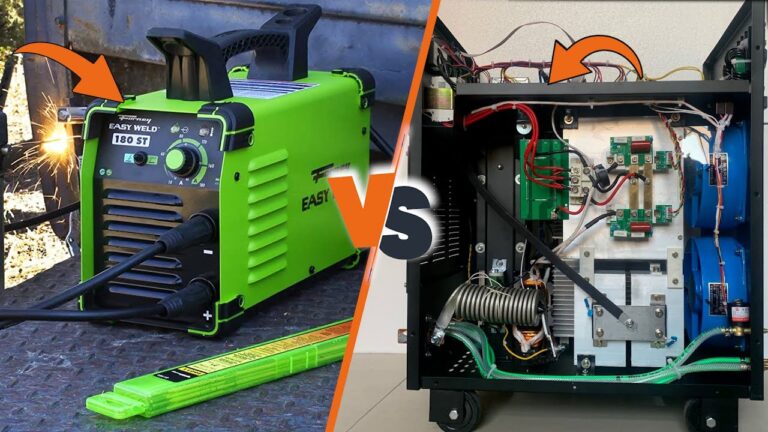Have you ever imagined how much do underwater welders make in the high sea or river? No doubt the job entails many risks but is very lucrative as you can earn a handsome salary.
It is also interesting that this job requires a little educational qualification. But you have first to join a diving school to excel in the diving skill and then even acquiesce expertise in welding job.
The job market all over the world always has a demand for underwater welders. The position is very demanding, and you must be super fit physically and equipped with the best welding machines for Money, excelled diving skills, and welding expertise. Most of the welders earn up to $ 25,000 to $100,000 annually.
Comparative table Underwater Welding Salary 2024
| Occupation | Average Salary | Annual Salary | Monthly Pay | Weekly Pay | Hourly Wage | Location |
|---|---|---|---|---|---|---|
| Underwater Diver | $44,845 | $38,702 – $51,130 | $3,737 – $4,261 | $862 – $983 | $23.84 | U. S. |
| Underwater Basket Weaver | $57,448 | $52,742 – $77,873 | $4,395 – $6,489 | $1,014 – $1,497 | $28 | U. S. |
| Welder | $47,010 | $31,350 – $63,660 | $2,613 – $5,305 | $603 – $1,224 | $22.15 | U. S. |
| Journeyman Welder | $54,733 | $48,673 – $62,513 | $4,056 – $5,209 | $936 – $1,202 | $26.37 | U. S. |
Salaries of underwater welders in different citiesin the usa
The average annual salary for underwater welders in the United States varies based on experience, certification, and the type of diving. According to various sources, the average annual salary for underwater welders in the US is around $60,000 to $120,000. However, the salary can vary significantly based on the location and the specific type of underwater welding. For example, in different cities, the annual salaries are as follows:
| City | Average Salary |
|---|---|
| San Jose, CA | $236,926 |
| Oakland, CA | $120,000 |
| Kansas City, MO | $131,485 |
| Toronto, Canada | $101,487 |
| Danville, CA | $55,588 |
| Campbell, CA | $55,516 |
| Dale City, VA | $54,983 |
| San Mateo, CA | $54,853 |
| Chicago, IL | $53,990 |
| Philadelphia, PA | $54,000 |
These figures demonstrate that the salaries of underwater welders can vary depending on the city and its associated cost of living.
Onshore Welders
This job is mainly connected with civil works usually performed on dams, docks, bridges, etc. The people engaged with the job are also assigned the task of inspecting and doing repair works on dam walls and checking sewer pipes, and cutting underwater debris in addition to their primary job of performing various tasks inland.
Since inland welders work in the freshwater of rivers and lakes, their diving gears are not affected by corrosion. These workers are not expected to work on oil and gas pipelines or structures. Most welders doing onshore welding earn from $ 25,000 to $ 80,000.
Offshore Welders
The offshore welders work in oceans, gulfs, and seas. While performing their job, they get support from the station, mostly built on the boat, etc., where they prepare the materials for welding, etc.
All the offshore welders are certified divers who are mostly engaged with oil and gas companies for maintenance and other works on the high seas. They also work for extracting and transporting oil under the sea bed, which is an uphill task.
The people connected with this job mostly spend days and weeks under the water. They have to bear the brunt of ever-changing bad weather, low visibility, and constantly mounting water pressure.
The usual schedule for welding starts in April and ends in November. The job is often for adventurous souls who intend to earn a lot of money in a short time, but meek should keep away. Most welders doing onshore welding earn from $ 40,000 to $ 100,000.
Factors on which the salary of Underwater welding depends
Experience:
A person having the credit of experience in the profession of underwater welding fetches a hefty amount of salary. In this profession, experience plays a vital role in determining pay and allowances.
The more a person has experienced, the higher he will demand compensation from his employer. In most cases, the employers concede to their demand for monetary benefits and their perks and privileges.
Location:
Multinational companies hire a welder working underwater for their projects spread in different countries, and their salaries often vary from country to country.
Even though they are working with individual companies, their pays and allowances are fixed, keeping in view the general structure of salaries and allowances of other employees but mostly higher because of their nature.
Certification:
A person with a welding certificate from a reputed institute is treated well by the employers and preferred in selecting jobs than the persons having no certificate or certificate from ordinary organizations. Such persons have more demand in the work market and remain out of a job after completing a project for less time.
Environment:
The underwater welders have to face harsh weather conditions such as sub-zero temperature, low visibility, and powerful water waves with huge power at work sites.
The enduring of adverse and unstable environmental conditions makes them one of the highest paying welding jobs. No ordinary person can withhold weather conditions, so only men with mettle can adopt this profession.
Depth of work:
The payment of workers is based on the location of the project under the sea. If it is very deep into the sea, then remuneration will also be higher because of the hardship and risk involved in the job.
Techniques of Underwater Welding
Underwater welding can be done in two ways
Wet Welding
The welding process, carried out under the water and is exposed to water, is called wet welding. During this process, a waterproof stick designed for such work is used.
Wet welding allows the welder a great measure of freedom of movement, is effective and economical. The power supply is connected to the base on the surface.
- Equipment for wet underwater welding: The welder to be provided with equipment appropriate to working conditions. The equipment must be updated and maintained following the standard regulations.
- Diving equipment: The equipment required for the working of welders are diving suits, drysuits, full face masks, surface supply, umbilical cord, air tank at the surface with compressor filling the air. All the equipment should be of acceptable quality and grade for the welder’s facilitation and to prevent the risk of a breakdown in continuity of work.
- Welding power source: The power source must be arranged to adjust to underwater welding conditions. It may be ensured that the intensive dynamic behavior of the power is necessary for greater depth.
- Safety switch: The electrical circuit must have a safety switch so that the flow of current be controlled to maintain the supply or cut it off in case of an accident.
- Communication system: A communication system should be established between the welder and the surface station for coordination.
- Special mechanical tools system: The tools such as electric drive are not used for safety reasons; instead hydraulic, and pneumatic tools must be preferred.
Dry Underwater Welding
The dry underwater welding procedure is adopted when work is required to be done deep into the water. The dry process is performed in a sealed chamber filled with helium gas and oxygen. In this way, the conditions are created for welders to breathe easily and work efficiently for high-quality welding joints.
This chamber is mostly constructed with steel, plywood, and canvas, etc. Its size and configurations are fixed, keeping in view the area and number of welders accommodated in the chamber. In this process, gas tungsten arc welding is used to ensure a good quality of work.
Is Underwater Welding a good career?
Underwater welding can be a lucrative career for those qualified and willing to take on the risks involved. The work is in high demand due to the need to maintain and repair underwater structures like oil rigs, ships, dams, and bridges. Underwater welders may earn an average salary range for underwater welding jobs between $40,000 and $80,000 per year, with more experienced welders earning over $100,000. Factors like level of experience, training, certifications, and type of welding impact salaries. While it offers higher pay, there are risks to consider like dangerous diving conditions and remote work sites. Overall, it can be a good career for adventurous types seeking high salaries in an increasing demand field.
How much do underwater welders get paid in the ocean?
Underwater welders working offshore in the ocean typically earn more than their inland and coastal counterparts. Experienced offshore underwater welders can make $ 30 per hour or over $ 60 per hour when working on deeper oil rig jobs. Per foot diving depth bonuses starting at around $1 per foot are also common offshore, especially in oil and gas underwater welding jobs. Reports show that in January 2024, the average underwater welder salary offshore was approximately $85,000 per year. With more training and experience, six figure salaries over $100,000 are possible working offshore. The most lucrative welding salaries are found offshore doing underwater construction and repair work on oil platforms, pipelines, and other structures.
What is the highest paid welding job?
The highest paid types of welding tend to be more complex or involve dangerous conditions demanding specialized training and skills. Underwater welding is one of the highest paid welding specialties with experienced divers making over $100,000. Pipeline welding also commands top salaries as intricate systems of pipes, valves, and related distribution infrastructure require expert welders to construct and maintain. Other high earning welding jobs include nuclear welder, aerospace welder, and oil rig welder working offshore. These types of welders earn top pay ranging from $75,000 to $150,000+ per year depending on factors like location, experience level, project complexity and more. In high demand industries, certified expert welders skilled in advanced applications can command very high salaries.
How much money does an underwater welder get a day?
An underwater welder can earn $500 to over $1,000 per day depending on experience level and job complexity. More experienced divers welding on deeper, hazardous offshore sites or specialized projects may make over $1,500 a day. Average pay is typically cited around $700 per day.
How does one become an underwater welder?
Becoming an underwater welder requires completing formal welder training, then specialized diving and underwater welding certification. This includes passing exams in theory and hands-on testing. Commercial diver training takes 1-2 years and covers skills like diving physics, medicine, welding, cutting, inspection and more. Hundreds of supervised dives are also required before certification.
What is the average salary for an underwater welder?
The average salary for underwater welders ranges from $40,000 to $80,000 per year according to sources. Salaries can top $100,000 with more experience and offshore work. Annual salaries depend on location, qualifications, project types and more. Day rates typically run $500-$1,000.
Where do underwater welders make the most money?
Underwater welders earn the highest salaries working in remote, deep water regions like the Gulf of Mexico and North Sea on complex offshore oil projects. These experienced divers can make over $100,000. Coastal and inland work pays less around $40,000-$60,000 for new divers.
How do most underwater welders die?
The most common dangers facing underwater welders are drowning, decompression sickness (“the bends”), and explosions/fire risk from welding gases under pressure. Proper training, safety protocols and protective equipment help mitigate these risks.
How much do underwater welders actually make?
It depends on skill level, location and project complexity, but pay typically runs from around $25,000 for trainees up to $50,000-$80,000 for more experienced divers. Underwater welders working offshore on oil and gas projects can earn well over $100,000 per year.
Do underwater welders make $100 an hour?
While not typical, some very experienced underwater welders make over $100 per hour. These top tier salaries are usually for dangerous offshore work at extreme depths requiring specialized training and skills to manage the higher risks and challenges. Most underwater welders can expect to earn hourly wages in the $25-$60 per hour range.
Where is the best place to live for underwater welding?
Popular hubs for underwater welders include Los Angeles, Houston, New Orleans and Seattle due to their proximity to major port infrastructure and offshore oil and gas projects in the Gulf of Mexico and Pacific Ocean. However, underwater welding jobs may require extensive travel to project sites.
Why is underwater welding so expensive?
Underwater welding pays a premium because of the complex logistical challenges, safety risks requiring extensive training and protection, and high costs of specialized diving and welding equipment involved. The harsh and remote nature of many underwater sites also adds expenses compared to land-based welding. The niche skills and dangers make underwater welders’ pay very high.
![How Much Do Underwater Welders Make [Avg Salary 2024] How Much Do Underwater Welders Make [Avg Salary 2024]](https://welding-world-awards.com/wp-content/uploads/2023/12/cropped-лого.jpg)
![How Much Do Underwater Welders Make [Avg Salary 2024] How Much Do Underwater Welders Make [Avg Salary 2024]](https://welding-world-awards.com/wp-content/uploads/2023/12/underwater-welding-salaries.png)






